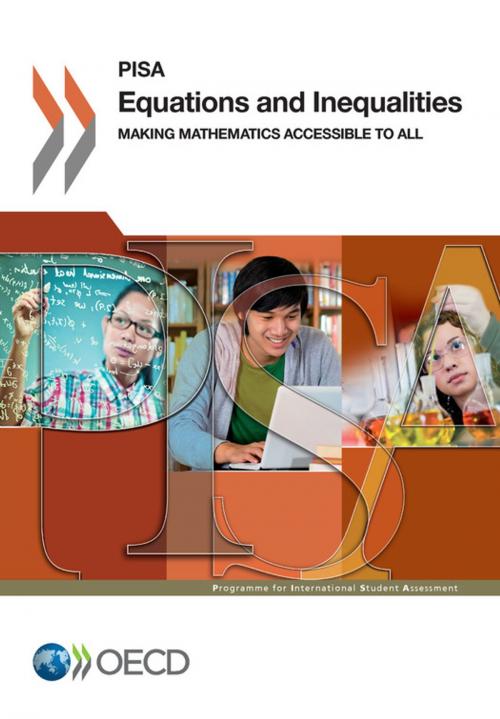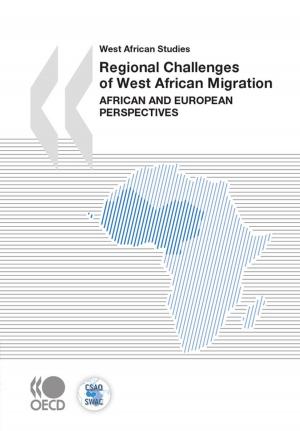Equations and Inequalities
Making Mathematics Accessible to All
Nonfiction, Reference & Language, Law, Commercial| Author: | Collectif | ISBN: | 9789264259348 |
| Publisher: | OECD | Publication: | June 20, 2016 |
| Imprint: | OECD | Language: | English |
| Author: | Collectif |
| ISBN: | 9789264259348 |
| Publisher: | OECD |
| Publication: | June 20, 2016 |
| Imprint: | OECD |
| Language: | English |
More than ever, students need to engage with mathematical concepts, think quantitatively and analytically, and communicate using mathematics. All these skills are central to a young person’s preparedness to tackle problems that arise at work and in life beyond the classroom. But the reality is that many students are not familiar with basic mathematics concepts and, at school, only practice routine tasks that do not improve their ability to think quantitatively and solve real-life, complex problems.
How can we break this pattern? This report, based on results from PISA 2012, shows that one way forward is to ensure that all students spend more “engaged” time learning core mathematics concepts and solving challenging mathematics tasks. The opportunity to learn mathematics content – the time students spend learning mathematics topics and practising maths tasks at school – can accurately predict mathematics literacy. Differences in students’ familiarity with mathematics concepts explain a substantial share of performance disparities in PISA between socio-economically advantaged and disadvantaged students. Widening access to mathematics content can raise average levels of achievement and, at the same time, reduce inequalities in education and in society at large.
More than ever, students need to engage with mathematical concepts, think quantitatively and analytically, and communicate using mathematics. All these skills are central to a young person’s preparedness to tackle problems that arise at work and in life beyond the classroom. But the reality is that many students are not familiar with basic mathematics concepts and, at school, only practice routine tasks that do not improve their ability to think quantitatively and solve real-life, complex problems.
How can we break this pattern? This report, based on results from PISA 2012, shows that one way forward is to ensure that all students spend more “engaged” time learning core mathematics concepts and solving challenging mathematics tasks. The opportunity to learn mathematics content – the time students spend learning mathematics topics and practising maths tasks at school – can accurately predict mathematics literacy. Differences in students’ familiarity with mathematics concepts explain a substantial share of performance disparities in PISA between socio-economically advantaged and disadvantaged students. Widening access to mathematics content can raise average levels of achievement and, at the same time, reduce inequalities in education and in society at large.















